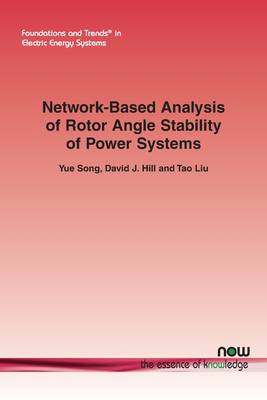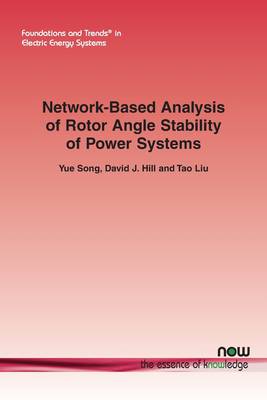
- Afhalen na 1 uur in een winkel met voorraad
- Gratis thuislevering in België vanaf € 30
- Ruim aanbod met 7 miljoen producten
- Afhalen na 1 uur in een winkel met voorraad
- Gratis thuislevering in België vanaf € 30
- Ruim aanbod met 7 miljoen producten
Zoeken
€ 93,95
+ 187 punten
Omschrijving
Rotor angle stability is a topic of fundamental importance in electric power systems. Traditionally, rotor angle stability analysis is oriented to node dynamics, especially the impact of generator modeling and parameters. On the other hand, the power network structural information is simply treated as some coefficients in the system dynamical models, which have been paid less attention. This monograph surveys the network-based theories of rotor angle stability that elaborate the role of power network structure, including the results developed in early years as well as in recent years that are facilitated by the new progress on graph theory. It focuses on the connections between power network structures and system dynamic behaviors, and those graph theoretic tools tailored for power system analysis. This publication provides new insights into some important problems in rotor angle stability that have not been well addressed by the traditional node-based approaches. Network-Based Analysis of Rotor Angle Stability of Power Systems is a must-read for all students and researchers working on the cutting edge of electric power systems.
Specificaties
Betrokkenen
- Auteur(s):
- Uitgeverij:
Inhoud
- Aantal bladzijden:
- 138
- Taal:
- Engels
- Reeks:
Eigenschappen
- Productcode (EAN):
- 9781680837780
- Verschijningsdatum:
- 26/11/2020
- Uitvoering:
- Paperback
- Formaat:
- Trade paperback (VS)
- Afmetingen:
- 156 mm x 234 mm
- Gewicht:
- 204 g

Alleen bij Standaard Boekhandel
+ 187 punten op je klantenkaart van Standaard Boekhandel
Beoordelingen
We publiceren alleen reviews die voldoen aan de voorwaarden voor reviews. Bekijk onze voorwaarden voor reviews.











